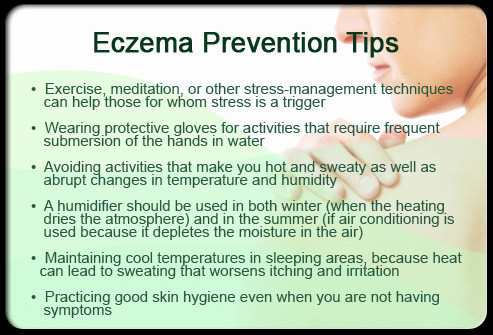Atopic dermatitis, or eczema as it is more commonly known is a skin condition that can be brought on by allergies. Like its cousin psoriasis, eczema is a long term condition, which can lead to very itchy and irritated skin, and even open sores.
A disease which commonly affects children, this sensitivity to sin products is usually outgrown by adolescence. Some unfortunate people have to cope with the irritating and inflamed condition into their adult life. Where psoriasis is exhibited by plaques of skin in red patches, and flakiness, eczema is usually characterized by red, swollen, shedding, cracking, blistered, or weeping skin. Eczema is not limited to just one location on the body. The sensitivity can show up anywhere on the body, mercilessly causing irritation and flakiness.”
Contents
Where Is Eczema Most Common?
Eczema can present anywhere on the skin, but unfortunately for sufferers, it is most commonly seen on the face and hands. Our faces are constantly exposed, and also where the skin can be the most sensitive, and our hands come into contact with soaps, lotions, and even fabrics. Touching a pet or a new bus seat can trigger a bout of eczema.
Washing your hands too frequently dries the skin out, which means that effective treatment on the hands can be difficult, due to the contact with water. It is best to exercise caution with what you touch, and always be sure to moisturize skin.
Liking the creases in skin, one of the reasons babies are so vulnerable to eczema is due to their increased wrinkles. In adults, we often see it in the backs of the knee, elbows or the front of the ankle, as these areas are warmer. The increased warmth attracts sweat and irritants from clothing and even airborne ones such as dust, spores and pollen.
Frequent contact with skin irritants combined with areas of skin rubbing generate the perfect conditions for eczema to grow and thrive.
Taking Antihistamines For Eczema
Antihistamines are often prescribed for people suffering with eczema. Essentially any inflammatory response on the skin is a histamine reaction, and so anti-histamines help to bring the temperature down and lower inflammation. Their negative effects can be the tendency to cause drowsiness, and extended exposure to them also causes immune system attacks. Prolonged prescription of antihistamine creams and tablets can also be costly.

Treating Eczema Naturally
Combat stress
Concurrently exacerbated by stress and anxiety, and brought about because of these problems, one way to try and keep the condition at bay is to reduce stress by using therapies such as yoga and meditation.
Avoid irritating fabrics
Selecting clothing that is made from natural fibers and is loose fitting will help skin stay cool and feel fresh. Anything too tight or synthetic causes further irritation, so choose carefully. It’s advisable to listen to your body too. If there’s anything new that irritates: ditch it!
Use moisturizer
Have a sensitive skin moisturizer at hand at all times to help lock moisture in after washing and temperatures. Doctors frequently prescribe hydrocortisone cream which can actually cause puffiness and irritation, so calendula can be an effective and soothing alternative.
Bleach bath
In severe cases of eczema, a well diluted bleach bath can help to clear the skin of infection-causing bacteria. Of course, some people find the bleach more irritating, and these should not be used frequently.
Cold compress
Applying a cold compress to the affected are provides some light relief to help minimize itching.
Avoid scratching
Some people wear mittens to stop them from scratching in the night. Whatever you can do to minimize scratching, which will only exacerbate the condition, is worth a go. Keeping nails too short to scratch is another popular way to combat the problem.
For a comprehensive guide to understanding the condition in more depth, and for detailed diet plans and natural remedies, you might like to try the Eczema Free Forever program.
